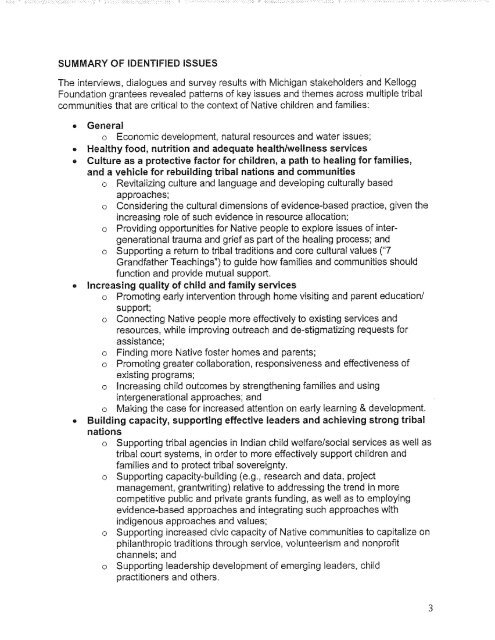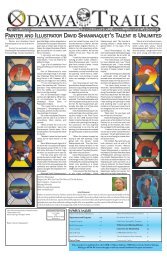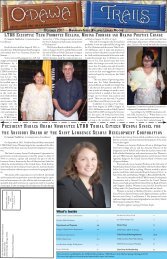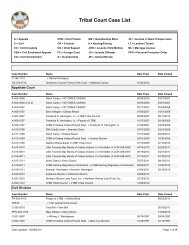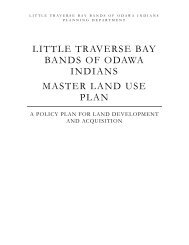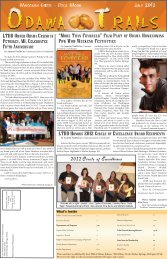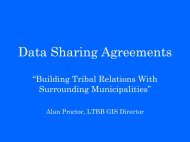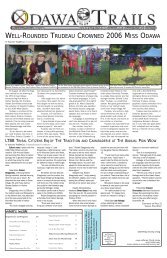United Tribes ) Michigan - Little Traverse Bay Bands of Odawa Indians
United Tribes ) Michigan - Little Traverse Bay Bands of Odawa Indians
United Tribes ) Michigan - Little Traverse Bay Bands of Odawa Indians
You also want an ePaper? Increase the reach of your titles
YUMPU automatically turns print PDFs into web optimized ePapers that Google loves.
SUMMARY OF IDENTIFIED ISSUES<br />
The interviews, dialogues and survey results with <strong>Michigan</strong> stakeholders and Kellogg<br />
Foundation grantees revealed patterns <strong>of</strong> key issues and themes across multiple tribal<br />
communities that are critical to the context <strong>of</strong> Native children and families:<br />
• General<br />
o Economic development, natural resources and water issues;<br />
• Healthy food, nutrition and adequate health/wellness services<br />
• Culture as a protective factor for children, a path to healing for families,<br />
and a vehicle for rebuilding tribal nations and communities<br />
o Revitalizing culture and language and developing culturally based<br />
approaches;<br />
o Considering the cultural dimensions <strong>of</strong> evidence-based practice, given the<br />
increasing role <strong>of</strong> such evidence in resource allocation;<br />
o Providing opportunities for Native people to explore issues <strong>of</strong> intergenerational<br />
trauma and grief as part <strong>of</strong> the healing process; and<br />
o Supporting a return to tribal traditions and core cultural values ("7<br />
Grandfather Teachings") to guide how families and communities should<br />
function and provide mutual support.<br />
• Increasing quality <strong>of</strong> child and family services<br />
o Promoting early intervention through home visiting and parent education!<br />
support;<br />
o Connecting Native people more effectively to existing services and<br />
resources, while improving outreach and de-stigmatizing requests for<br />
assistance;<br />
o Finding more Native foster homes and parents;<br />
o Promoting greater collaboration, responsiveness and effectiveness <strong>of</strong><br />
existing programs;<br />
o Increasing child outcomes by strengthening families and using<br />
intergenerational approaches; and<br />
o Making the case for increased attention on early learning & development.<br />
• Building capacity, supporting effective leaders and achieving strong tribal<br />
nations<br />
o Supporting tribal agencies in Indian child welfare/social services as well as<br />
tribal court systems, in order to more effectively support children and<br />
families and to protect tribal sovereignty.<br />
o Supporting capacity-building (e.g., research and data, project<br />
management, grantwriting) relative to addressing the trend in more<br />
competitive public and private grants funding, as well as to employing<br />
evidence-based approaches and integrating such approaches with<br />
indigenous approaches and values;<br />
o Supporting increased civic capacity <strong>of</strong> Native communities to capitalize on<br />
philanthropic traditions through service, volunteerism and nonpr<strong>of</strong>it<br />
channels; and<br />
o Supporting leadership development <strong>of</strong> emerging leaders, child<br />
practitioners and others.<br />
3


